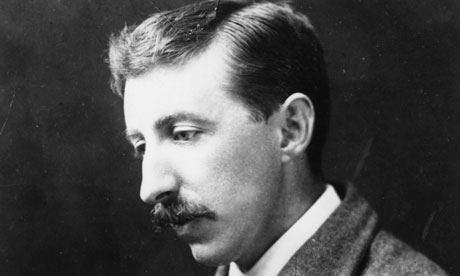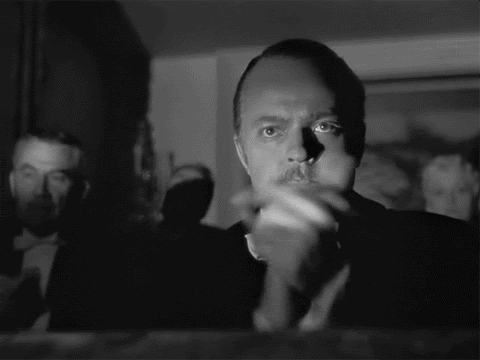In yesterday’s post, Tucker pinpointed the exact instant he became a serious reader. Others may have had similar epiphanies or “a-ha” moments, but my journey was a little more drawn out. For me, there was no single spark. But looking back, there are a few obvious flashpoints that set me on my way. If you want the one paragraph version, I’ll refer you to our ‘About Us’ page. But if you have time for the full monty, read on.
One of my earliest milestones was reading A Taste of Blackberries by Doris Buchanan Smith. I still remember being struck by the death of the narrator’s best friend. I even remember where I was when I read it. That a book could do more than entertain, that it could really work through some serious stuff, (and that a person could die of something as innocent as a bee sting) was all a revelation to me. It hadn’t really been done in a kids book before. I mean, sure, Charlotte’s Web had done it. But Charlotte was a spider. What kid hadn’t seen a dead spider before? Who gets all broken up about losing a spider? But this was different. This was a book that made me think.
I continued to read for pleasure, The Bobbsey Twins, the Boxcar Children, some Roald Dahl and Beverly Cleary, and a lot of biographies in monochrome canvas library bindings. Nothing yet that could be called great literature. But my first big setback was about to rear its head. I still wonder what genius decided to greet the newly-arrived 7th graders of Clayton Jr. High with Herman Melville’s Moby Dick, but that’s precisely what they did. Some of my classmates may have benefitted from that first assigned reading, but I certainly wasn’t ready for it. It would become the first in a long line of assigned texts I would avoid like the plague.
A broken leg in my freshman year would put me back on track, removing the possibility of any regular, afterschool high-jinks and paving the way for me to actually tackle Great Expectations in my new-found free time. The mystery of Pip’s unknown benefactor pulled me through what would become my first novel-length reading assignment actually fulfilled. It was a proud moment. Still, when my afternoons were once again filled with sports and aimless wandering, good books fell by the way-side.
A series of painful reading experiences followed. The Scarlet Letter, Beowulf, The Sound and the Fury, Portrait of the Artist as a Young Man… There are too many to name. All of them unread to this day. In that period though, I remember one experience that was similar to the one Tucker described. I sauntered into class one-day, and the kid next to me was reading For Whom the Bell Tolls while he waited for the bell to ring. Who did he have for English, I asked. He answered. I hadn’t seen anybody else reading that book- were they reading it in class? No, he answered. You mean, you’re just reading it for fun- by choice? Mmm-hmm. Is it any good? Mmm-hmm.
He was probably either annoyed or embarrassed under my questioning, but I was trying to make sense of the following:
a) why someone my age would fill their free time, by choice, with a literary classic, b) what kind of book was so interesting that one would read it even during the 10 minute intervals between classes, and
c) what great secrets were being kept from me by my insistence that these books were outside my reach?
I didn’t immediately find the answers to those questions, but they did come eventually. So Nathaniel Schaeffer, wherever you are, I owe you one.
AP English awaited me in my senior year, and for the first time we were expected to read a book over the summer and turn in a paper before slackers like me could leach onto any sort of in-class discussion to pick-up the salient points. I would actually have to read the book. As it turned out, Song of Solomon by Toni Morrison was the highlight of my high-school English career. I loved that book. It was interesting, it was about something, and it even carried off the kind of heart-pounding ending I had only read in thrillers.
Still, I wasn’t fully converted. One thing held me back. I always was, and am today, an atrociously slow reader. A life filled with great and important books would surely be a painful one. I needed one final catalyst to make me a serious reader, and that would come in college.
I lived on campus, but got a job at the airport. My wife was commuting to another school, 45 miles away, which left me without a car for most of the week. This meant a train ride downtown, a bus ride to the airport, and a shuttle to my actual work location. Now, some people can study while commuting like this. But trying to juggle gigantic O-Chem textbooks, a notepad, a calculator, a sandwich, and pens and highlighters, I could not. What could I do on this daily odyssey? I could read. And read I did.
I soon found that it wasn’t literature itself that had aggravated me for years, but the deadlines, quizzes, papers and essay answers that my K-12 education had married to it. Freed from the constraints of all that garbage, I found that even the “great” books were, well… pretty darn great. They’ve been my first literary love ever since.
How about the rest of you? Was there one moment for you? Or was becoming “a discerning reader” a process?




























